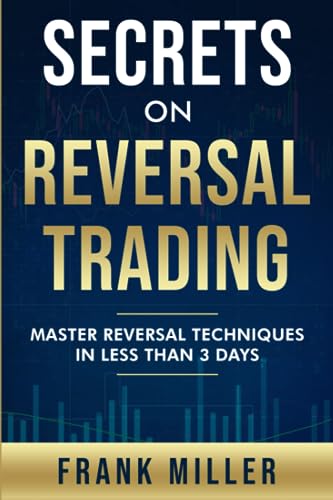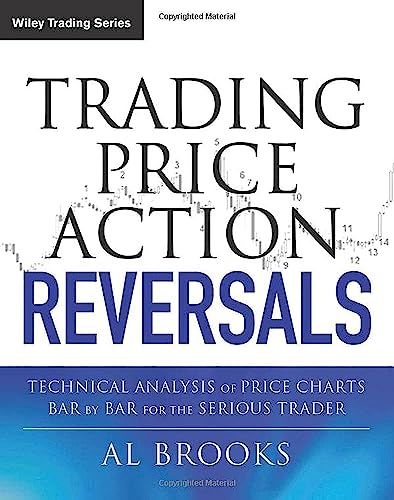- Miller, Frank (Author)
- English (Publication Language)
- 92 Pages - 11/01/2020 (Publication Date) - Independently published (Publisher)
Introduction
Reversal trading is a powerful strategy that can unlock significant profit potential in the financial markets. This approach involves identifying key market turning points and capitalizing on the subsequent price movements. In this article, we will explore the concept of reversal trading and discuss how it can be effectively utilized by traders and investors.
Understanding Reversal Trading
Reversal trading revolves around the idea that markets tend to exhibit patterns and trends that can be exploited for profit. It focuses on identifying reversal points, where the prevailing trend is likely to change direction. By recognizing these turning points early on, traders can position themselves to benefit from the subsequent price movements.
The Importance of Timing
Timing is crucial in reversal trading. Traders need to be able to identify when a trend is losing momentum and a reversal is likely to occur. This requires a combination of technical analysis tools, such as trendlines, support and resistance levels, and oscillators. By analyzing these indicators, traders can pinpoint potential reversal zones and make informed trading decisions.
Key Strategies for Reversal Trading
There are several popular strategies that traders employ when it comes to reversal trading. One common approach is to wait for a confirmed reversal signal, such as a trendline break or a candlestick pattern formation. This helps traders validate the potential reversal and reduces the risk of false signals.
Another strategy involves using multiple timeframes to confirm a reversal. By analyzing the price action across different timeframes, traders can gain a clearer picture of the overall market sentiment and increase the probability of a successful reversal trade.
Risk Management and Reversal Trading
As with any trading strategy, risk management is essential in reversal trading. Traders should always define their risk tolerance and set appropriate stop-loss levels to protect their capital. Additionally, it is crucial to manage position sizes and avoid overexposure to any single trade.
Conclusion
Reversal trading offers traders the opportunity to unlock significant profit potential by capitalizing on market turning points. By understanding the concept of reversal trading, employing effective timing strategies, and implementing proper risk management techniques, traders can enhance their chances of success in the financial markets. Remember to always conduct thorough research and practice on demo accounts before applying reversal trading in live trading scenarios.
- Miller, Frank (Author)
- English (Publication Language)
- 92 Pages - 11/01/2020 (Publication Date) - Independently published (Publisher)
- Hardcover Book
- Brooks, Al (Author)
- English (Publication Language)
- 576 Pages - 01/24/2012 (Publication Date) - Wiley (Publisher)
- Turner, Robert (Author)
- English (Publication Language)
- 83 Pages - 06/18/2023 (Publication Date) - Independently published (Publisher)
- Teally, Robb (Author)
- English (Publication Language)
- 142 Pages - 08/06/2024 (Publication Date) - Independently published (Publisher)
Last Updated on September 6, 2023 by ingmin




